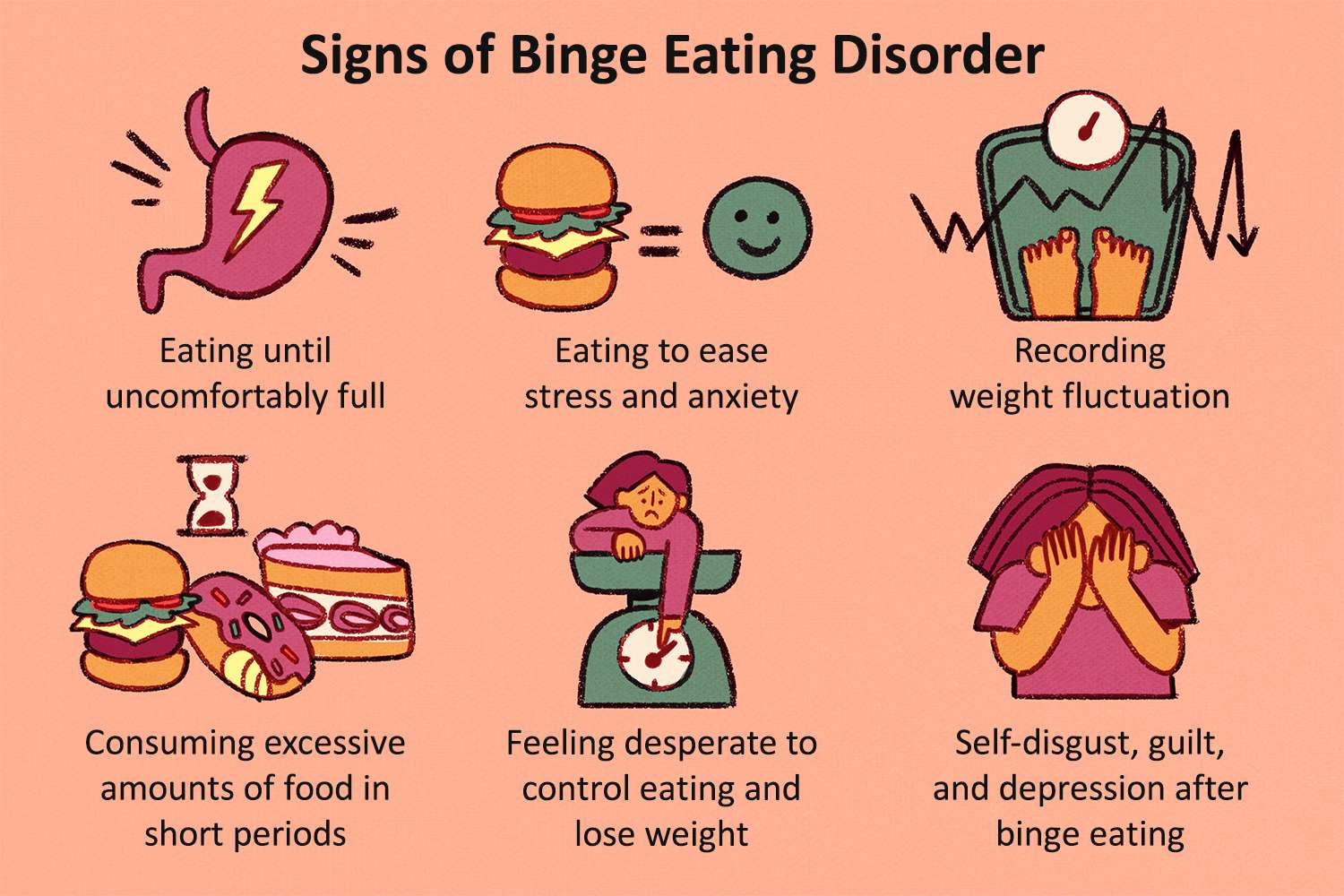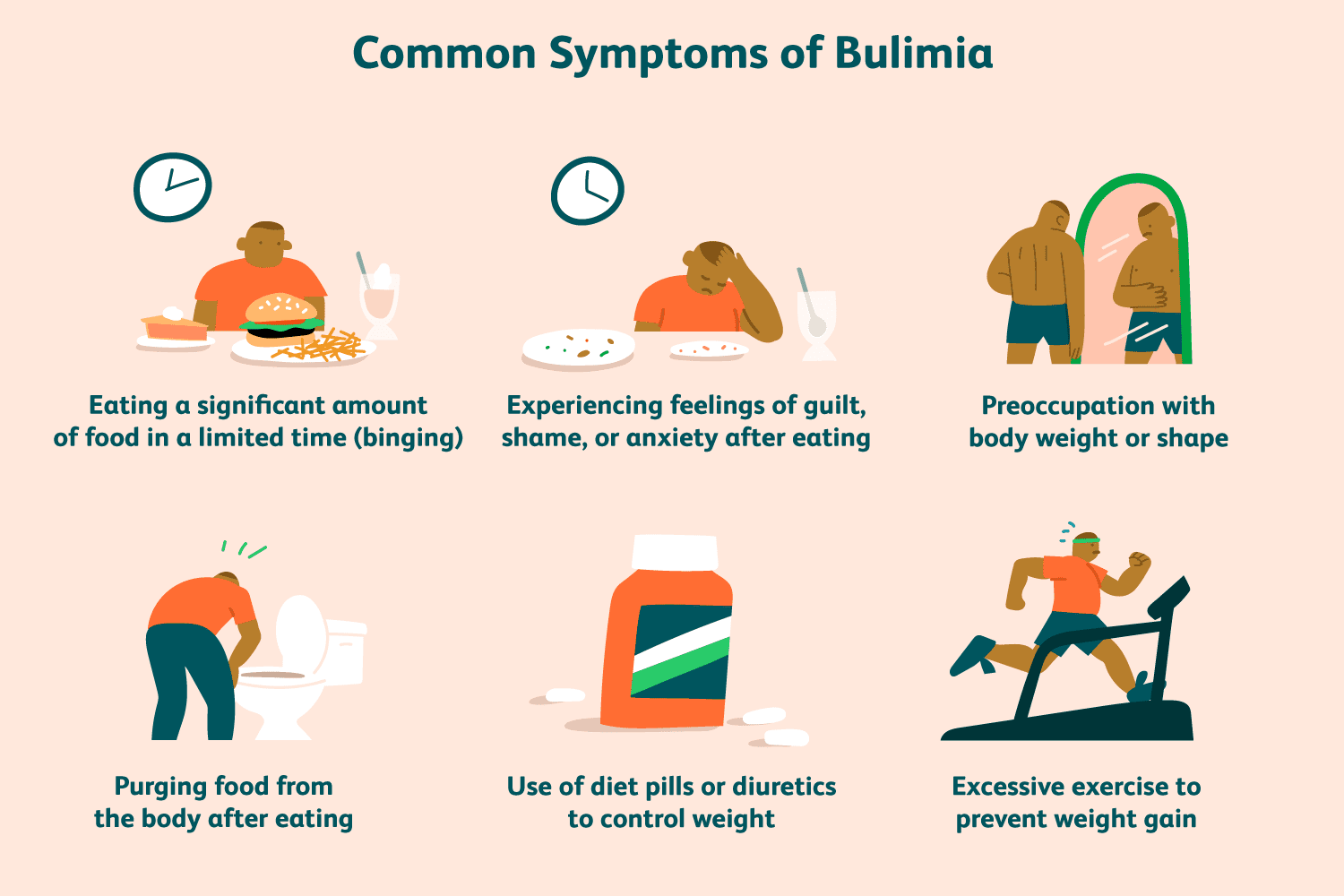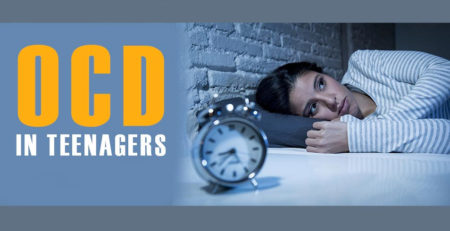Teen Eating Disorders – Understanding Eating Disorders and Their Impact
Eating disorders are a growing concern among teens, affecting both their physical and mental health. These disorders occur when a person has a distorted and unhealthy relationship with food, often leading to weight loss or gain and other health problems. There are different types of eating disorders, all of which are complex and require specialized treatment. This post will explore various eating disorders, their symptoms, and how they impact a teen’s overall well-being.
What Are the Different Types of Eating Disorders?
Common types of eating disorders are anorexia, bulimia, binge eating, and avoidant/restrictive food intake disorder (ARFID).
Anorexia Nervosa: Anorexia Nervosa is an eating disorder characterized by an intense fear of gaining weight, a distorted body image, and an obsession with food and weight. People with anorexia tend to have significantly low body weight and may refuse to eat altogether. They may also engage in excessive exercise and purge behaviors. The physical impact of anorexia is dangerous and can result in malnutrition, heart problems, and even death.
People with anorexia:
- eat very little on purpose, leading to a very low body weight
- have an intense fear of weight gain and fear of looking fat
- have a distorted body image and see themselves as fat even when they are very thin
Anorexia is a severe eating disorder affecting many young and old people. Those who suffer from this condition are often strict about what and how much they will eat. Such people may think about food or calories almost all the time. To lose weight, some individuals with anorexia may fast or exercise too much. Others use diuretics, enemas, or laxatives to try and reduce their weight. If not treated on time, anorexia can lead to severe health problems or even death. Those affected by this disorder must seek professional help to overcome the same.
Bulimia Nervosa: Bulimia Nervosa is an eating disorder involving recurrent episodes of binge eating followed by purging behaviors such as forced vomiting, fasting, or over-exercising. People with bulimia may fear weight gain, but their behaviors are often secretive, making identifying challenging. The physical effects of bulimia can include dehydration, digestive problems, and dental problems resulting from vomiting.
People with bulimia:
- Overeat and feel out of control to stop, called binge eating
- Do things to make up for overeating, such as:
- Make themselves throw up on purpose after overeating, called purging
- Use laxatives, diuretics, weight loss pills, fast, or exercise a lot to prevent weight gain
- Judge themselves based on body shape and weight
Bulimia, like many other eating disorders, can be challenging to detect. One key sign is excessive eating within a defined period, known as bingeing, often followed by purging through means such as self-induced vomiting or excessive exercise. While individuals with anorexia are typically underweight, people with bulimia can appear to be of a healthy or even overweight stature. This can make it harder for loved ones to notice if they struggle with their eating habits. Additionally, those with bulimia may go to great lengths to hide their behavior, making it all the more important to intervene and seek treatment if you or anyone you know exhibits symptoms of the disorder.

Binge Eating Disorder: Binge eating disorder involves consuming a significant amount of food quickly, regularly, and without control. People with binge eating disorders often feel guilty or ashamed of their eating habits and may experience depression and anxiety. The physical effects of binge eating disorder can cause weight gain, high blood pressure, and digestive issues.
People with binge eating disorder:
- overeat and feel out of control to stop
- eat large amounts even when they are not hungry
- may feel upset or guilty after binge eating
- often gain weight and may become very overweight
Binge eating disorder is a severe condition affecting many individuals worldwide. One of its key characteristics is that those experiencing it tend to eat much faster than expected. They may feel ashamed or embarrassed and eat alone so others don’t realize how much they consume. Unlike individuals with bulimia, those with binge eating disorders do not try to purge their bodies after eating large amounts of food. They don’t make themselves throw up, use laxatives, or exercise a lot to compensate for their binge eating. If you or someone you know has been exhibiting these symptoms, it may be time to seek help. Binge eating disorders can be challenging to manage, but recovery is possible.
ARFID: People with Avoidant/Restrictive Food Intake Disorder, or ARFID, exhibit a strong disinterest in foods and often recurrently avoid these items. Cyclic weight loss or stunted growth are often development side effects that accompany the disorder, though individuals typically lack typical feelings of body image insecurity that are observed for disordered eating issues related to body image. For this reason, those affected by ARFID may not be afraid to gain additional weight via food intake.
People with avoidant/restrictive food intake disorder:
- are not interested in food or avoid foods
- lose weight, or don’t gain an expected amount of weight
- are not afraid of gaining weight
- don’t have a poor body image
People with Avoidant/Restrictive Food Intake Disorder (ARFID) tend to avoid meals due to turn-offs such as smells, tastes, textures, or food colors. Inexperience with certain foods can trigger anxiety of choking or vomiting. Unlike anorexia or bulimia, ARFID doesn’t result from an underlying medical problem that influences their eating behaviors.
Orthorexia Nervosa: Orthorexia is not formally recognized as an eating disorder but involves an unhealthy obsession with healthy eating. People with orthorexia are so concerned about consuming “clean” or “pure” foods to exclude entire food groups, leading to nutrient deficiencies. Orthorexia is not necessarily about weight loss and can result in social isolation, anxiety, and denial of medical intervention.
What is Orthorexia Nervosa?
Orthorexia nervosa is an eating disorder characterized by an obsession with healthy eating. People with orthorexia nervosa often have a rigid and inflexible attitude toward food and may only allow themselves to eat foods that they perceive to be healthy. This can lead to severe restriction of the diet and can eventually lead to malnutrition.
Causes of Orthorexia Nervosa
No single cause of orthorexia nervosa exists, but it is thought to develop due to a combination of psychological, social, and cultural factors. For some people, orthorexia nervosa may develop in response to a previous eating disorder such as anorexia nervosa or bulimia nervosa. Others may develop orthorexia nervosa after following a strict diet for weight loss or for health reasons.
Symptoms of Orthorexia Nervosa
People with orthorexia nervosa often become preoccupied with thoughts about food and may spend a great deal of time planning their meals. They may also become fixated on the nutritional content of food and may only allow themselves to eat foods that they believe are healthy. This can lead to severe dietary restrictions and can eventually result in malnutrition. Other symptoms of orthorexia nervosa include anxiety, depression, social isolation, and weight loss.
Diagnosis of Orthorexia Nervosa
Orthorexia Nervosa is not currently recognized as an official diagnosis by the Diagnostic and Statistical Manual of Mental Disorders (DSM-5). However, it is thought to be a relatively new disorder that is not yet well-understood by the medical community. As such, there are no definitive diagnostic criteria for orthorexia nervosa. However, some experts suggest that someone may be diagnosed with orthorexia nervosa if they meet specific criteria, such as having an intense fear of weight gain or becoming obsessed with the nutritional content of food.
Treatment for Orthorexia Nervosa
There is no specific treatment for orthorexia nervosa, but there are various therapies that may be helpful in managing the condition. These include cognitive-behavioral therapy (CBT), which can help people to change their thinking patterns and behaviors related to food; family therapy, which can help to address any family dynamics that may be contributing to the disorder; and group therapy, which can provide support and guidance from others who are dealing with similar issues.
How Do Eating Disorders Affect Health and Emotions?
Eating disorders can cause severe problems throughout the body.
Anorexia can lead to health problems caused by undernutrition and low body weight, such as:
Anorexia can cause undernutrition.
Undernutrition is a condition that occurs when a person does not consume enough calories or nutrients to meet their body’s needs. When someone has anorexia, they often restrict their food intake, which can lead to undernutrition. Undernutrition can cause various health problems, including muscle weakness, fatigue, and anemia.
Anorexia can cause low body weight.
Anorexia can also cause low body weight. People with anorexia often fear gaining weight, which leads them to restrict their food intake and exercise excessively. This can result in significant muscle mass and fat loss, leading to low body weight. Low body weight can cause health problems such as osteoporosis, infertility, and heart problems.
Anorexia can cause electrolyte imbalances.
Anorexia can also cause electrolyte imbalances. Electrolytes are minerals that play a role in many critical bodily functions, including muscle contraction and hydration. When someone has anorexia, they may lose a lot of fluids through vomiting or excessive sweating, leading to electrolyte imbalances. Electrolyte imbalances can cause health problems such as irregular heartbeat, seizures, and kidney failure.
Anorexia can cause gastrointestinal problems.
Anorexia can also cause gastrointestinal problems. People with anorexia often experience constipation or diarrhea due to their restricted food intake and lack of nutrients. People with anorexia may also experience nausea and vomiting due to their electrolyte imbalances. Gastrointestinal problems can lead to health problems such as dehydration and malnutrition.
Anorexia can cause mental health problems.
Anorexia can also cause mental health problems such as anxiety and depression. People with anorexia often have a negative body image, leading to feelings of inadequacy and low self-esteem. Additionally, people with anorexia may also experience social isolation due to their restricted food intake and low body weight.

People with anorexia may struggle to focus and have trouble remembering things. Mood changes and emotional problems include:
- feeling alone, sad, or depressed
- anxiety and fears about gaining weight
- thoughts of hurting themselves
Bulimia can lead to health problems caused by vomiting, laxatives, and diuretics, such as:
- Low blood pressure: Bulimia nervosa is an eating disorder characterized by recurrent episodes of binge eating, followed by compensatory behaviors such as purging or excessive exercise. One of the lesser-known side effects of bulimia is low blood pressure, also known as hypotension. This occurs because the body loses vital fluids through vomiting or excessive sweating, leading to a decrease in blood volume and, ultimately, a drop in blood pressure. Low blood pressure can cause dizziness, fainting, and even heart palpitations. It is essential to seek help if you or someone you know shows signs of bulimia and to address the physical and psychological consequences associated with this disorder.
- Irregular heartbeats: Bulimia, an eating disorder characterized by binging and purging, can harm the body. One of the lesser-known but very serious side effects is irregular heartbeats. When someone with bulimia purges, they can cause a loss of essential electrolytes in their body, such as potassium and magnesium, which can cause an abnormal heart rhythm. This can lead to severe complications, including fainting, heart failure, and sometimes even death. It’s essential to seek medical help immediately if you or a loved one is struggling with bulimia to prevent these potentially life-threatening issues.
- Feeling tired, weak, dizzy, or faint: Bulimia is an eating disorder that can cause a number of severe physical and emotional symptoms. One of the most common physical symptoms of bulimia is feeling tired, weak, dizzy, or faint. This is likely due to the disorder’s strain on the body, as those suffering from bulimia often engage in binge eating followed by purging through methods such as vomiting or excessive exercise. The constant cycle of bingeing and purging takes a toll on the body, causing it to become depleted of essential nutrients and energy. This can lead to feelings of fatigue, weakness, and dizziness, which can affect a person’s ability to perform even basic tasks. It is essential for those suffering from bulimia to seek professional help in order to address these and other negative consequences of the disorder.
- Blood in vomit or stool: If you or someone you know is struggling with bulimia, it is essential to be aware of the potential symptoms that may arise from this eating disorder. One concerning symptom to be aware of is the presence of blood in vomit or stool. This can occur due to the damage caused by stomach acid, which can erode the lining of the digestive tract. It is essential to seek medical attention if you experience these symptoms, as they can indicate serious health complications and may require treatment. Remember, recovery from bulimia is possible with the proper help and support.
- Tooth erosion and cavities: Bulimia, a disorder characterized by binge eating and subsequent purging, can have significant effects on a person’s overall health, including dental health. Frequent vomiting can lead to tooth enamel erosion, the hardest substance in the body. As the enamel wears away, teeth can become sensitive, discolored, and prone to cavities. In addition, the acidic content from stomach bile can further damage teeth, leading to serious dental issues. Treatment for bulimia often involves addressing the disorder’s physical and psychological aspects, including dental care to address any damage caused by the condition. Awareness of the dental implications of bulimia is important in preventing further harm to a person’s health.
- Swollen cheeks (salivary glands): Bulimia is a severe eating disorder that can lead to a range of health problems, including swollen cheeks. When individuals with bulimia regularly purge by inducing vomiting or using laxatives, they put their salivary glands under severe stress, which causes swelling. This can make the cheeks appear puffy and uncomfortable, but it is only one of many potential complications of bulimia. Seeking treatment for eating disorders like bulimia is critical for managing the physical and mental health consequences that can result from this disorder.
People with bulimia may have these emotional problems:
- low self-esteem, anxiety, and depression
- alcohol or drug problems
- thoughts of hurting themselves
Binge eating can lead to weight-related health problems, such as:
- Diabetes: Binge eating, or the consumption of large quantities of food in a short period of time, is not only an unhealthy habit, but it can also lead to serious weight-related health problems. One of the most common health problems resulting from binge eating is diabetes, a condition where the body cannot properly regulate blood sugar levels. Over time, this can lead to damage to the blood vessels, nerves, and organs and increase the risks of heart disease, kidney failure, and blindness. Therefore, it is essential to be mindful of our eating habits and to seek help if we struggle with binge eating. By adopting healthier eating habits and seeking support from healthcare professionals, we can reduce the risks of developing these severe health conditions.
- High blood pressure: Binge eating is a habit that can have dire consequences on your eating habits and general health. When one eats massive amounts of food in a single sitting, especially if they consume too many calories or fat, the excess can lead to significant weight gain and other health problems. One of those risks is high blood pressure, also known as hypertension. This condition occurs when too much pressure builds up in your arteries, leading to conditions such as heart disease and stroke. If you struggle with binge eating, seeking help to manage your eating patterns and minimize the risk of health problems is essential. A balanced diet and regular exercise can help maintain a healthy weight, reduce blood pressure, and improve overall health.
- High cholesterol and triglycerides: Binge eating is an eating disorder with serious health risks, particularly regarding weight-related complications. Medical research indicates that excess food intake during binge eating can cause high cholesterol and triglycerides. These health issues can lead to coronary heart disease, stroke, or peripheral artery disease. Although binge eating may feel like a temporary escape from stress, anxiety, or depression, it is essential to address the underlying causes of the disorder to prevent long-term health consequences. Therefore, seeking help from a healthcare professional or therapist is highly recommended to alleviate the physical, emotional, and psychological effects of binge eating.
- Fatty liver: Binge eating is a common problem that can lead to a host of weight-related health problems, one of which is fatty liver. Fatty liver occurs when there is an excess accumulation of fat in the liver cells, leading to inflammation, scarring, and ultimately, liver damage. This condition is closely linked to obesity and insulin resistance, and its prevalence is on the rise, posing a significant health burden worldwide. While several factors can contribute to fatty liver, including alcohol intake and certain medications, binge eating has been identified as a significant risk factor. People who consume large amounts of food in a single sitting, often feeling a lack of control, are at a greater risk of developing this condition. Therefore, it’s essential to understand the impact of binge eating on our health and take necessary steps to prevent its adverse consequences.
- Sleep apnea: Binge eating, the consumption of large amounts of food in one sitting, can have profound health implications. One of the most common weight-related health problems associated with this behavior is sleep apnea. This condition occurs when the airway is repeatedly blocked during sleep, causing breathing to be interrupted. The extra weight gained through binge eating can pressure the airway, increasing the likelihood of experiencing sleep apnea. It is essential to recognize the potential risks of binge eating and take steps to address them before it leads to further health complications. Seeking the advice of a healthcare professional can provide valuable resources and support that can aid in creating a healthier lifestyle.
People with binge eating disorder may:
- have low self-esteem, anxiety, or depression
- feel alone, out of control, angry, or helpless
- have trouble coping with strong emotions or stressful events
ARFID may lead to health problems that stem from poor nutrition, similar to anorexia. People with ARFID may:
- not get enough vitamins, minerals, and protein
- need tube feeding and nutrition supplements
- grow poorly
People with ARFID are more likely to have:
- anxiety or obsessive-compulsive disorder (OCD)
- autism spectrum disorder or attention deficit hyperactivity disorder (ADHD)
- problems at home and school because of eating behavior
What Causes Eating Disorders?
Eating disorders often have many causes, including genes, environment, and stressful life events. Factors that can contribute to the increased chances of having an eating disorder include negative body image, a focus on physical appearance and weight, beginning unhealthy diets at a young age, engaging in challenging sports such as gymnastics, ballet, ice skating, or wrestling that put a lot of pressure on individuals to maintain their might in order to succeed, & having a family member who has struggled with maintaining their own healthy relationship with food. Lastly, mental health illnesses of anxiety, depression, or obsessional compulsive disorder can also fuel the predisposition toward looking for ways to manage self and environment by manipulating one’s relationship with food.
How Are Eating Disorders Diagnosed?
Identifying an eating disorder can be challenging, involving gathering information from the patient and separate observations. To get to the bottom of what is happening for the individual, healthcare providers and mental health professionals will look into their history, recognize any physical symptoms that may be present, observe thought patterns, inspect current eating behaviors, and conduct a physical exam.
The doctor may start by taking measurements of weight and height and track changes along growth charts over time. Tests may also be conducted to determine if there are any other underlying concerns or problems connected with the eating disorder that have surfaced.
How Are Eating Disorders Treated?
Effective treatment of eating disorders involves the collective effort of a medical team composed of a physician, nutritionist, and psychotherapist. Nutritional counseling helps individuals make healthful changes to their eating habits as medical care addresses any imbalances or related physical concerns. Patients receive the emotional and mental support needed to combat their unhealthy situation through individual, group, and family talk therapy sessions. For extra reinforcement, doctors might provide medication to counter issues like binge eating scenarios, diagnosis of depression, anxiety symptoms, or possible underlying mental health concerns.
The strategy and approach employed in treating an individual’s eating disorder varies depending on the type and severity of the condition in question. Moreover, very severe cases may require hospital admission for treatment due to extreme weight loss or additional complications arising from ill fortune with their digestive systems.
What if I Have an Eating Disorder?
If you think you may have an eating disorder:
Tell someone. If you or someone you know is struggling with an eating disorder, you must know that you’re not alone. Eating disorders affect millions of people yearly, and seeking help is vital for recovery. Talking to a parent, teacher, counselor, or other trusted adult about what you’re going through is an essential first step. These individuals can provide support and guidance and help you find the necessary resources to get your needed care. Remember that recovery is possible; seeking help is a sign of strength. So don’t delay; speak up and get the help you deserve. Tell a parent, teacher, counselor, or an adult you trust. Let them know what you’re going through. Ask them to help.
Get help early. Eating disorders can be particularly difficult to address because of the emotional and psychological complexities that underlie them. It’s essential to remember that seeking help is not a sign of weakness, and it takes strength and bravery to acknowledge that you need support. The earlier you seek professional intervention for your eating disorder, the better equipped you will be to manage its impact on your mental and physical health. When left untreated, an eating disorder can have devastating and long-lasting side effects, including severe nutritional deficiencies, organ damage, and even death. If you’re struggling with disordered eating, reach out to a qualified healthcare professional today and take the first step toward healing. Remember, you deserve to feel healthy, happy, and whole. When an eating disorder is caught early, a person has a better chance of recovery. Make an appointment with your doctor or an eating disorders specialist.
Go to all appointments. Dealing with an eating disorder can be challenging, requiring time and effort. It involves gaining a deeper understanding of yourself and your emotions while overcoming the triggers and temptations that come your way. It may seem overwhelming sometimes, but remember that every step you take towards recovery is a step towards a healthier and happier life. Take the time to educate yourself about the disorder and ask as many questions as you need to along the way. With the proper support and perseverance, you can conquer this challenge and emerge stronger than ever before. Treatment takes time and effort. Work hard to learn about yourself and your emotions. Ask questions any time you have them.
Be patient with yourself. If you struggle with an eating disorder, remember to be patient with yourself. Overcoming this disorder is a process, and it won’t happen overnight. As you embark on this journey, there will be much to learn, and you’ll progress one step at a time. During this process, taking good care of yourself and surround yourself with people who genuinely support you is essential. Remember that the road to recovery might have its ups and downs, but with patience, consistency, and support, you will eventually find your way to a healthier life. So, be kind to yourself, take small steps, and celebrate every milestone along the way. There’s so much to learn, and change happens a little at a time. Take care of yourself and be with people who support you.
Teen eating disorders can be devastating and have long-lasting physical and mental health impacts. It’s essential for parents, caregivers, and healthcare providers to understand these disorders’ signs and symptoms and to get support for teens who may be struggling. Eating disorders often require specialized treatment, including therapy, medication, and dietary counseling. Remember, early intervention can save lives. If you or someone you know is struggling with an eating disorder, don’t hesitate to ask for help.
Contact us today at 816.819.5166 or schedule your appointment online.












